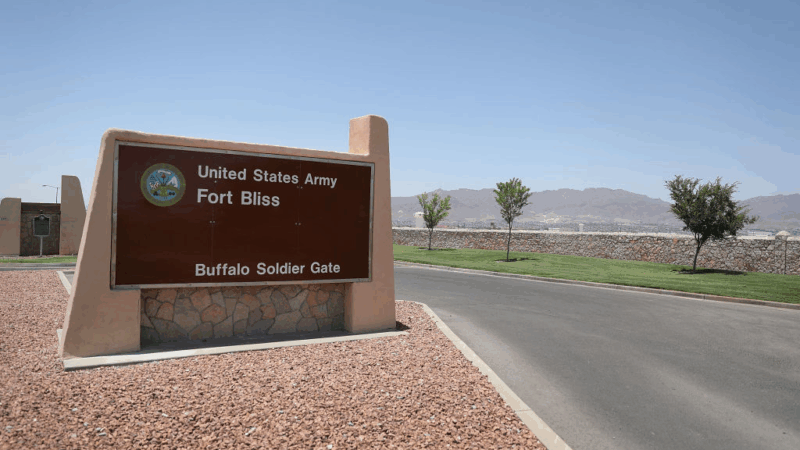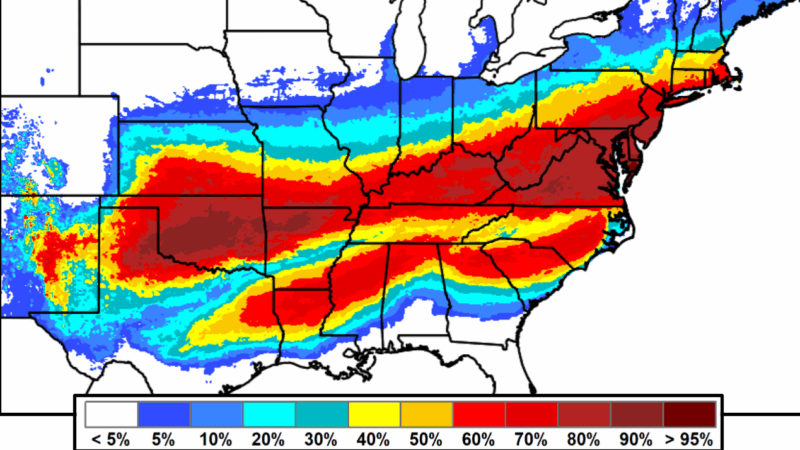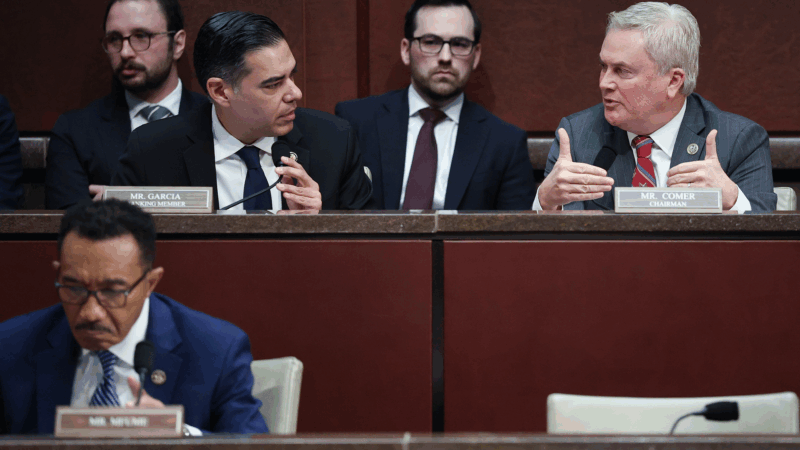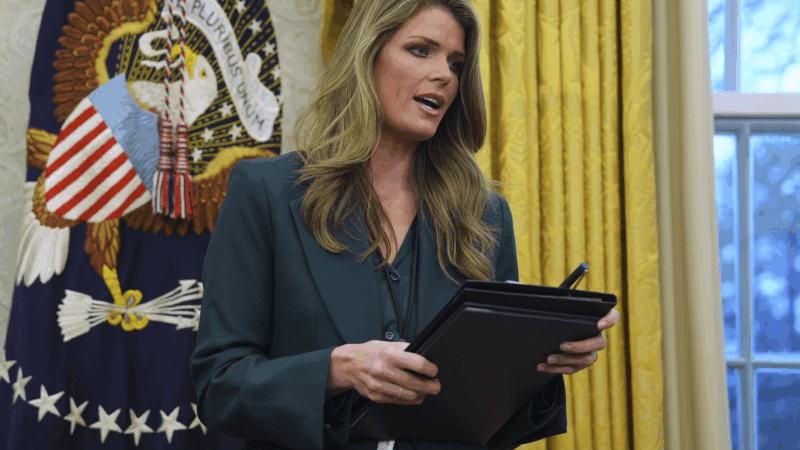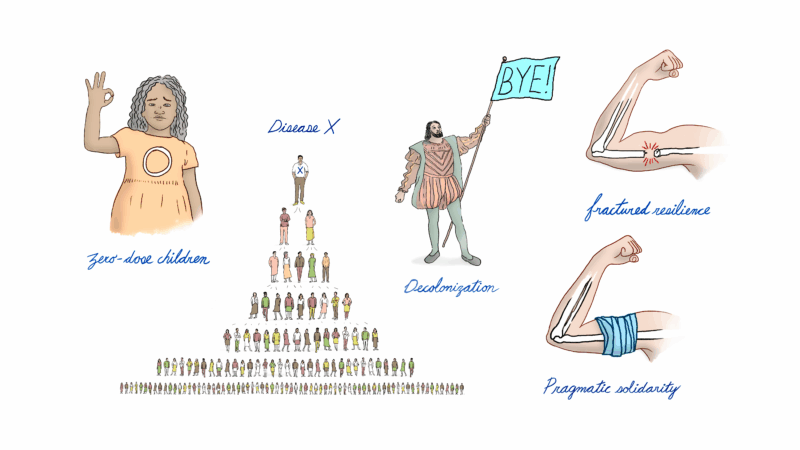Hamas says it’s delaying the next Israeli hostage release

TEL AVIV, Israel — A spokesperson for the militant group Hamas said Monday that it would delay the release of the next group of Israeli hostages scheduled for this Saturday, imperiling a fragile ceasefire between Israel and Hamas.
Hamas’ announcement comes days after President Trump floated a plan for the U.S. to take over Gaza and relocate the enclave’s Palestinian residents and four weeks into a ceasefire agreement that has seen Israeli hostages exchanged for Palestinian prisoners and detainees. Trump has since doubled down on that plan.
Abu Obeida, the military spokesman for Hamas’ Al-Qassam Brigades, accused Israel of violating the terms of the deal. He said Israel is “delaying the return of the displaced to the northern Gaza Strip, targeting them with shelling and gunfire in various areas of the Strip, and not allowing relief supplies of all kinds to enter as agreed upon.”
In a statement, Israeli Defense Minister Israel Katz said the Hamas announcement “is a complete violation of the ceasefire agreement and the hostage release deal.”
He added that he had asked the country’s military “to prepare at the highest level of readiness for any possible scenario in Gaza and to ensure the protection of Israeli communities.”
At the end of the first phase of the deal, 33 Israeli hostages would’ve been freed in exchange for nearly 2,000 Palestinian prisoners and detainees. More than 70 Israeli hostages are currently held by Hamas, many of whom are believed to be dead, according to Israel.
A group advocating for the release of all hostages said they had “urgently requested assistance from the mediating countries to help restore and implement the existing deal effectively.” The Hostages and Missing Families Forum added that they stood by the Israeli government and that they “encourage maintaining the conditions” to free all the remaining hostages.
The three male hostages released last Saturday appeared gaunt and frail, and Israelis reacted with anger and horror at their appearance.
So far 16 Israeli hostages have been released in this deal, in exchange for more than 670 Palestinian prisoners and detainees freed from Israeli jails. Five Thai hostages were also released. They had been working in Israel as agricultural laborers, and were not part of the deal.
The next stage of the deal is supposed to see additional hostages released for prisoners and a further withdrawal of Israeli troops from Gaza.
Trump’s Middle East envoy, Steve Witkoff, played a key role in persuading Israeli Prime Minister Benjamin Netanyahu to accept the ceasefire’s first phase, which began on Jan. 19.
The Israeli leader’s far-right allies, however, have threatened to bring down the government if Israel does not resume the war in Gaza and eliminate Hamas rule there.
Hamas has long accused Netanyahu of creating obstacles in the deal. Netanyahu and his allies have, in turn, accused Hamas of demanding changes to agreements already made.
The U.S. has been helping mediate the talks, alongside Egypt and Qatar, and Secretary of State Marco Rubio is scheduled to visit Israel and key Arab states — Saudi Arabia and the United Arab Emirates — this week, the State Department said.
President Trump’s plans to have the U.S. take over Gaza and relocate the nearly 2 million Palestinians elsewhere have invited the ire of Hamas’ leadership in Gaza and the Palestinian Authority in the West Bank, as well as rejection from regional leaders and many U.S allies.
Egypt announced Sunday it would host a summit of Arab leaders later in the month, amid alarm in the region over President Trump’s proposals.
Most of the hostages on the list of 33 were among the more than 250 people captured during the Hamas-led attack on Israel on Oct. 7, 2023, which led to the war in Gaza.
Around 1,200 Israelis were killed in the Hamas attack, according to Israeli officials, while more than 47,000 Palestinians have been killed in Gaza, according to health officials in the enclave.
Nuha Musleh in Ramallah, West Bank, Itay Stern in Tel Aviv, Israel, and Ahmed Abuhamda in Cairo contributed to this report.
Autopsy finds Cuban immigrant in ICE custody died of homicide due to asphyxia
A Cuban migrant held in solitary confinement at an immigration detention facility in Texas died after guards held him down, according to an autopsy report released Wednesday that ruled the death a homicide.
Confused by all the notices issued for intense winter weather? Here’s your guide
The National Weather Service issues a litany of notices before and during inclement weather events. They can be important signals on how to respond.
A massive winter storm will hit large parts of the U.S. through the weekend
A large storm system is expected to hit this weekend, with snow and ice from Texas to the Carolinas and up the Eastern seaboard. The winter system could bring more than a foot of snow.
House Oversight panel votes to hold Bill and Hillary Clinton in contempt of Congress
Republicans on the committee have been seeking to question the Clintons as part of a probe into the government's handling of the Jeffrey Epstein case. The vote sends the matter to the full House.
Lindsey Halligan, Trump’s former personal attorney, exits Virginia prosecutor’s office
The move comes after a federal judge wrote in court document that the "charade of Ms. Halligan masquerading as the United States Attorney … must come to an end."
Global buzzwords that will be buzzing in your ear in 2026
Will it be a year of "fractured resilience"? Or "pragmatic empathy"? Will "MOUs" be the next global health strategy? Are we in a new age of "decolonization" — or of "localization"?

